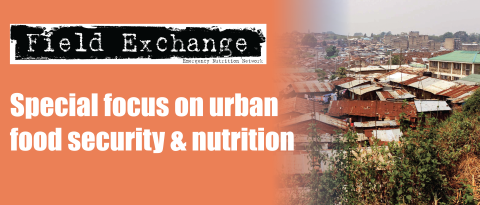The Food Security and Livelihoods in Urban Settings Working Group
The Food Security and Livelihoods in Urban Settings Working Group of the Global Food Security Cluster (gFSC Working Group) is composed of approximately 20 organisations including cluster lead agencies, WFP and FAO, academic institutions and non-governmental organisations (NGOs).
The overall aim of the gFSC Urban WG is to be a specialist resource within the gFSC to help strengthen the capacity of partners to shape urban food insecurity response at the global and national levels.
The work of the gFSC Urban WG is framed within the Terms of Reference agreed with the Inter-Agency Standing Committee (IASC), as described on the gFSC website and outlined below.
To achieve its objectives, the gFSC Urban WG researches and helps develop food security tools and systems, encourages roll out of gFSC partner’s technical resources, and looks for gaps in available data and urban food security guidance. WG partners help develop tools and guidelines through collection of case studies and best practices, analysis of indicators, and review of assessment and targeting methods. Linked with this is the WG’s interactive geographical mapping of partners’ urban activities design, aimed at making the information available at field level.
The gFSC Urban WG participates in other reference groups within the United Nations system, while also linking with and assisting other international groups that have similar interests, including the IASC Meeting Humanitarian Challenges in Urban Areas (MHCUA) Reference Group, the International Federation of the Red Cross, Concern Kenya and others. The individual core members of the WG are also called on as individual experts by gFSC major global partners and academic institutions as they seek to define their urban strategy.
Since a core of gFSC work is to support the growth of food clusters at national level, the gFSC Urban WG encourage outreach to the country-level through country clusters and local partners, and supports the creation of country level urban hubs and working groups. Because key members of the working group are field based, they are able to play an active part in encouraging both international and local organisations to gather together and support each other on urban food security issues.
For information on the gFSC Urban Working Group, visit: http://foodsecuritycluster.net/working-group/urban-food-security-and-livelihoods or contact: Marina Angeloni, Focal Support Officer, email: marina.angeloni@wfp.org
Imported from FEX website


